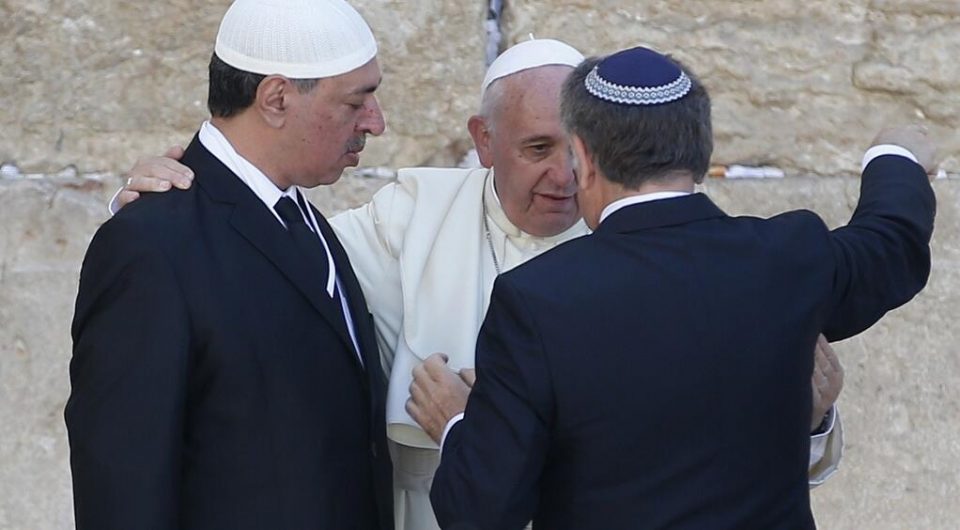Aisha Belhaj
Perhaps the recent attack on the Indian-British novelist Salman Rushdie in New York is another opportunity to discuss freedom of belief and freedom of expression. And instead of being a curse on the culture to which we belong, as seen by many, in order to re-arrange the values that frame our societies in the Arab region, let us look in the context of religious, expressive and behavioral freedoms. Religion did not come in order to save man from existential absurdity, or psychological loss and absence of meaning only, but rather in order to frame humanity to return to its origin, which is the logic of reason and organized behavior, to reject the law of the jungle. Religion came to give man a general guide to reduce his greed, selfishness, and fanaticism against the other. And to give people a broader affiliation than the family and the tribe, the human affiliation to the same belief, which urges tolerance with the rest of the beliefs. And in that human belonging as a whole, supported by the values that religions brought.
Religion did not come to break man, but to save his humanity. Insulting a person for beliefs he does not believe in may be liberating and emptying him, but it harms others who believe in these beliefs. Expression of opinion may be a right that should not be touched, but freedom of belief is also a right, and it must not be infringed. And the first, when he criticizes religion and some of its manifestations, he does so within the framework of freedom of expression, but when does he become a violator of the other’s freedom of religion? Where are the boundaries between freedom of expression and freedom of belief? When is criticism of religion within the limits of freedom of expression and opinion? And when is it considered an attack on the right to belief of another?
Belief is not a geography of the earth, or a material issue with clear borders. Rather, it is perhaps one of the most wide, narrow and diverse issues, not only between one orientation and another, but between one individual and another. Everyone has their own understanding of religion, even those who follow a certain sheikh in his concept of religion, look at religion differently, based on two factors: the same religious perception they have, before meeting the sheikh. And their relationship with the sheikh, and the nature of the people who are upon him.. In sum, we find that we are facing multiple religions, which are seen from the outside as one religion.
If the matter is so complex, why do we seek to set external limits for religion, which the other should not cross? Well, it comes first to awareness and respect for the other, psychological balance and moral values, which are also not fixed. A psychologically balanced person has a healthy relationship with the community that includes the first human on earth, not the community made up of his neighborhood, school, university or church. This person criticizes it and turns to the opposite, in order to exercise his freedom, but he does not break into the field of those who still cling to the belief by touching it, as this will disrupt social peace, and cause conflicts and chaos. The exerciser of his freedom of expression may not intentionally have this effect, but he causes it consciously, especially if he is educated.
There are ways to protect the other by law. Every defender of the symbols that Rushdie criticized, cites anti-Semitism laws, which are extreme laws that prevent reflection and analysis. It is unreasonable to deny the occurrence of the Holocaust, with material and immaterial evidence, but the goal of the laws is not to protect the reality of the Holocaust from skeptics, but rather to prevent questioning its details and the truth of the common figures, in order to prevent exposing its exploitation in order to milk the Western conscience burdened with guilt, because of his silence, and because of Hitler The same, Zionism bears the Western conscience for its crimes because it comes from it, so do we need to protect religion or to protect the right to religiosity?
Religion is continuous because it has a transient existence in time and space, like any idea or fact that travels alone and no one prevents its impact in a time or place. There are religions that moved through one person, from another continent, in times before the era of speed, to thousands and millions in another distant place, perhaps unheard of in the original homeland. Religiosity, on the other hand, is a right that must be protected, but what are the ways to protect it? This is a difficult question, and we see the many laws that claim to protect religion in our countries, in which punishments are adapted according to the whims of the systems, and in their entirety it is an attack on all human rights, not only on his right to expression or religion.
Published first alaraby-co-uk

